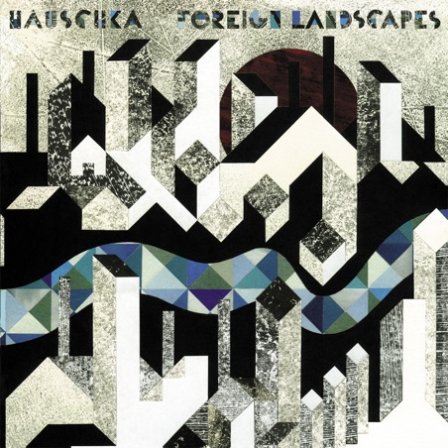It’s hard to pull off charm these days. Art that is charming — small landscapes, dog portraits, etc. — often seems not just pleasing or quaint, but also cheap and inconsequential. In fact, most of what goes by the name of “charming” today is a product of consumer industry; it’s a bastard aesthetic designed to gloss over the inherent emptiness of mass-produced culture. Its sheen is essentially distracting or, worse, blinding, covering over something rotten at its core and thereby disarming more critical responses (think Thomas Kinkade, Taylor Swift, Glee, Mini Coopers). Such charm goes hand-in-hand with its little siblings kitsch and cutesiness; it raises a front of innocence and helplessness in order to avoid the (justified) wrath of its beholders.
At times, charm can be an effective strategy, especially when mixed with a sharp strain of cynicism (hello, Jason Schwartzman), but even then it does little more than stink up the place. Musically, in, say, the form of “twee,” it works only when it upends its own pretensions (Morrissey singing “This Charming Man” or Stuart Murdoch’s “Lord Anthony”), but it all too frequently turns claustrophobic and nauseating when pursued for its own easy irony (Camera Obscura, Los Campesinos!). In fact, the long history of 20th-century music seems to be defined by a struggle against its own inevitable charm; the avant-garde emerges again and again to ward off music’s tendency to fall into easy cliché and sentimental distraction, producing a succession of new styles (from furniture music to elektronische musik to punk), each of which itself soon becomes its own form of charm.
Hauschka is nothing if not charming; he’s a melancholic folk artist with a whimsical experimental streak. And the best that could be said about his new album, Foreign Landscapes, is that it seems to struggle, to varying degrees of success, with its own irrepressible charm. Hauschka (the stage name of Düsseldorf-based composer and musician Volker Bertelmann) spends most of his time working on prepared piano, which means he likes to bust open the piano’s top and mess with its hammers and strings. He’s known as an impish innovator, stuffing his instrument with tin foil, gaffing tape, felt cloth, and other household items in order to transform its natural harmonics and timbral dimensions; in concert, his piano turns into a miniature carnival of sight and sound, with ping pong balls and bottle caps popping out of its top, setting off a seemingly random series of rattles and clangs. In this, he comes at the end of a long battle between the progressive musician (Erik Satie, John Cage, etc.) and what is perhaps the most offensively charming instrument in his repertoire: the piano as both a piece of furniture and an industrial music-making machine.
Foreign Landscapes presents Hauschka trying to move beyond these experiments by adding a 12-piece string and wind ensemble and by exploring the theme of traveling. Many of the songs are inspired by Hauschka’s recent touring schedule and try to convey, via layered, repetitive figures and rhythmic shifts, the experience of moving through new landscapes and strange cities. Throughout, Hauschka affects a traveler’s naiveté, not only with his interest in the themes of childhood and play, but also in the wonder of new sights and sounds. The solo piano pieces work well enough. My favorite is “Mount Hood,” an exceedingly romantic melody accompanied by a series of weird percussive clicks and whirs. Hauschka’s piano sounds like it’s hooked up to an old-fashioned plinko machine; you can nearly see the nuts and balls dancing beneath the piano lid, and the song as a whole inspires the listener’s own childish imagination. At best, these solo piano pieces recall Alexander Calder’s brightly-colored circus constructions, but their novelty can also seem cheap, like toys at a carnival. Sometimes, as in “Snow,” the preparations distract annoyingly from the song itself, while at others, as in “Early in the Park,” it sounds like, as with all cheap toys, something’s broken.
The orchestrated pieces are even less satisfying. One must give some credit to San Francisco’s Magik*Magik Orchestra, whose playing here is uniformly lively and attractive. But these songs — referencing far-flung sites such as “Madeira” and “Kamagowa” — trade in musical clichés in more ways than one. Opener “Alexanderplatz” features a lonely gypsy violin that is forced to bend and shift according to the demands of a bustling clockwork pattern — okay, I get it, we’re in an Eastern city on the Western make. I was even more annoyed with “Union Square,” which just comes across as loud, fast, and anxious; the piece doesn’t sound like or unlike Union Square, it just sounds like other music that’s supposed to sound like a city. Maybe I’m being too literal here, but I think the best orchestral music of this sort either creates a new sense of space or gives us a new way of experiencing familiar spaces; these orchestral pieces merely refer us back to earlier musical clichés and thus fall again and again into the realm of kitsch — they are perhaps “cinematic,” but they do not seem real.
Hauschka has shown much promise in the past, but Foreign Landscapes buries its own experimental leanings under layers of charm and cliché: childish sentiments, cute sounds, and easy references. So unless you’re a wandering peasant or soundtracking an independent film about financial ruin and sexual depravity in Prague, you’re probably gonna want to skip this one. It’s going to take a lot more than charm to navigate this corporate mess of a planet.
More about: Hauschka




